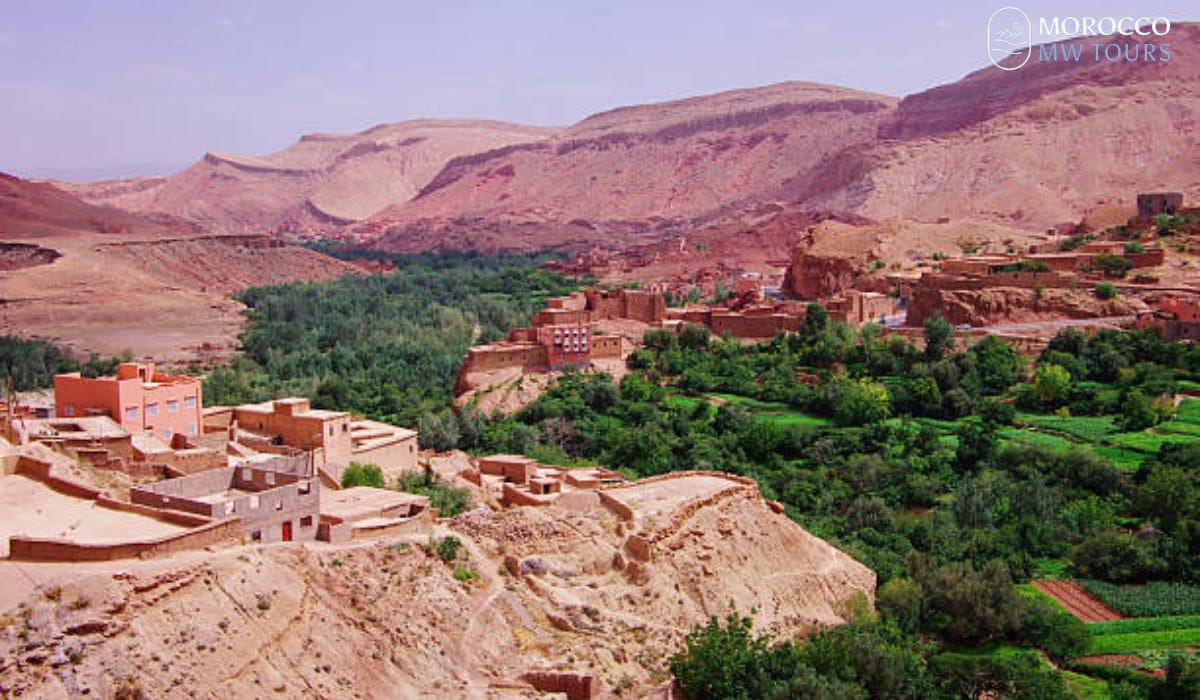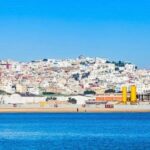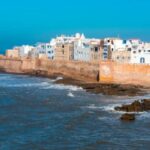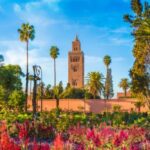
Before traveling to Morocco, it may be helpful to learn about the country’s largest indigenous population group, the Barbers. Who are the Berbers in the Sahara? The Berber people Sahara are an essential part of North Africa’s cultural identity, preserving their language, traditions, and lifestyles despite historical changes. The Barbers have lived in the desert for thousands of years and are the indigenous people of North Africa, extending from Morocco to Egypt, passing through the Sahara Desert. If you’re interested in exploring their rich culture, this article is for you.
- Names of Berber People Sahara
- A Brief History of the Berbers
- The Impact of Arabization on Berber Identity
- Berber Demographics: Population and Distribution
- Berbers in Politics: Influence and Representation
- Berber Languages: Dialects and Linguistic Diversity
- Berber Religion: Beliefs and Spiritual Practices
- Berber Architecture: Traditional and Modern Designs
- Berber Culture and Arts: A Rich Heritage
- A Culinary Journey: Exploring Authentic Berber Cuisine
- Amazigh Tribes of Morocco
- Amazigh Women: Role and Influence in Moroccan Society
- Modern Challenges Facing the Amazigh People
- Berber Villages in the Atlas Mountains
- Nomadic Berbers of the Sahara Desert
- 10 Fascinating Facts About the Berbers
- People Also Ask
Names of Berber People Sahara
Berber people Sahara have names that reflect their culture and identity, and their close connection to nature and the desert. Common names include:
- Tafoukt: means the sun
- Thamaghilt: means camel, due to the importance of camels in their desert life.
- Massin: is the name of a famous Amazigh warrior.
- Idir: means the living or the immortal.
A Brief History of the Berbers
Berber people Sahara date back more than 5,000 years, and were among the first peoples to settle in North Africa. They lived as agricultural communities, then transformed into nomadic herders as the Sahara Desert expanded.
In the past, the Berbers in Morocco embraced various religions, including Christianity, Judaism, and Animism. After the Islamic conquest of North Africa, the Berbers converted to Islam, and most of them now follow the Maliki school of thought. Many Jewish and Christian Berbers emigrated, although small communities remained in Morocco.
Read more: Morocco Country History
The Impact of Arabization on Berber Identity
Over the centuries, the Berber people of Sahara have been subjected to waves of Arabization, especially after the Islamic conquest. While they embraced Islam, they preserved their language and culture for a long time, but over time, Arabic became the dominant language in many of their regions.
Berber Demographics: Population and Distribution

Berbers are found in many African countries, but Berber communities in the Sahara are widespread in: Morocco, Algeria, Mali, Niger, and Libya.
Berbers in Politics: Influence and Representation
Throughout history, Berbers have had a strong political influence, ruled by powerful Amazigh dynasties such as the Almoravids and Almohads. Today, they are seeking recognition of their cultural and political rights.
Berber Languages: Dialects and Linguistic Diversity
The Berber language is a fundamental element of Amazigh identity. It branches into several dialects, the most popular in Morocco: Tarifit, Tazait, and Tachelhit. Despite attempts at Arabization, Berber remains a living language and has been officially recognized in some countries, such as Morocco and Algeria.
Read more: Morocco Itinerary 7 Days Luxury
Berber Religion: Beliefs and Spiritual Practices
The Berbers have inhabited North Africa since ancient times and originally embraced a variety of religious beliefs, including Christianity, Judaism, and natural spirituality. After the Islamic conquest of North Africa, most Berbers converted to Islam, although a Jewish and Christian minority persists in Morocco to this day.
Berber Architecture: Traditional and Modern Designs
The Berber people of Sahara are famous for their unique building methods, relying on mud, stones, and wood to construct homes to keep them cool.
Berber Culture and Arts: A Rich Heritage
Despite the differences between the Berber tribes, they share basic values such as tribal solidarity, attachment to the land, and adherence to language as a symbol of identity.
The Berbers of Morocco have many unique festivals, such as the Fantasia Festival and the Marriage Festival. Arts are also an essential part of Berber culture.
The Berber culture of the Sahara is characterized by traditional dances and geometric motifs that appear in clothing, jewelry, and engravings.
A Culinary Journey: Exploring Authentic Berber Cuisine
Berber cuisine is an integral part of your travel experience in Morocco, where you’ll taste the most famous traditional Amazigh dishes, including couscous, tagine, and bread taoussi. Mint tea is also an essential part of Berber hospitality.
Read more: Moroccan Herbal Remedies
Amazigh Tribes of Morocco
The Amazigh live in different regions of Morocco, and are divided into several main tribes, the most prominent of which are:
- Rural people
- The Zayanids
- The Shloh
- Tuareg
Amazigh Women: Role and Influence in Moroccan Society
Amazigh women are responsible for managing household affairs, including cooking, caring for children, and milking livestock. They also excel in traditional crafts such as weaving and pottery, which gives them economic independence.
Read more: Solo Female Travel to Morocco
Modern Challenges Facing the Amazigh People
Despite the official recognition of the Amazigh language, there are still challenges facing the Amazigh:
- Confronting discrimination and marginalization in some sectors.
- The struggle for land rights.
- Climate change affecting their pastoral lifestyle.
- Exploiting the natural resources in their areas without benefiting from them.
Berber Villages in the Atlas Mountains

The Berber villages of the Atlas Mountains are distinguished by their own charm and authentic traditional character. They feature terraced fields and mud-brick houses, as well as breathtaking views, such as the village of Imlil, the gateway to Mount Toubkal.
Nomadic Berbers of the Sahara Desert
The Amazigh people are distinguished by their close relationship with nature, with many living in mountains and desert areas. Despite being influenced by different civilizations and cultures throughout the ages, the Amazigh people have preserved their identity and traditions, which remain deeply rooted in their daily lives to this day.
10 Fascinating Facts About the Berbers
Here are 10 Fascinating facts about Berber people Sahara:
- They are the indigenous people of North Africa and their homeland extends from Egypt in the east to the Sahel countries in the west.
- The word “Berber” is not native to Amazigh culture, but was given to them by foreigners centuries ago. It is derived from the Greek word “barbaros,” which was used in ancient times to describe anyone who did not speak Greek.
- Today, the Amazigh prefer to be called Imazighen, which means free people.
- The Berber language is unique in its phonetic structure, with 38 consonants and only 3 vowels.
- The Berbers of Morocco speak several dialects, not one unified language.
- There is a connection between the Berber languages and the Germanic languages, partly due to the rule of the Germanic Vandal tribe in North Africa.
- After the spread of Christianity in North Africa, many Berbers lived as Christians and Jews. However, with the Islamic conquests in the seventh century AD, they converted to Islam, and it became a major part of their cultural identity.
- Marrakech is the city most closely associated with Berber culture.
- In traditional Amazigh life, men tend to livestock, while women take care of family affairs and make handicrafts such as pottery, carpets, and jewelry.
- There are many famous Berber figures throughout history, including: Ramses II, Ibn Battuta, and Zinedine Zidane.
We’d love to have you with us, join the tour now and get your special discount!
In conclusion, learning about the Berber people Sahara reveals a rich cultural identity that has thrived for thousands of years. Their traditions, language, and way of life make the Berber people Sahara an essential part of North Africa’s heritage.
Book your adventure today and don’t miss the chance to discover Morocco in a unique way!
People Also Ask
Are Berbers Black or Arab?
Berbers are not Arabs and are not classified as a specific color. They are an independent ethnic group of North African origin.
Where Are Berbers Originally from?
The Berbers originated in North Africa, where they have inhabited the region for thousands of years.
Are People from Casablanca Berber?
Some of Casablanca’s inhabitants are of Berber origin, but today the city is a mix of Arabs, Berbers, and other groups.





